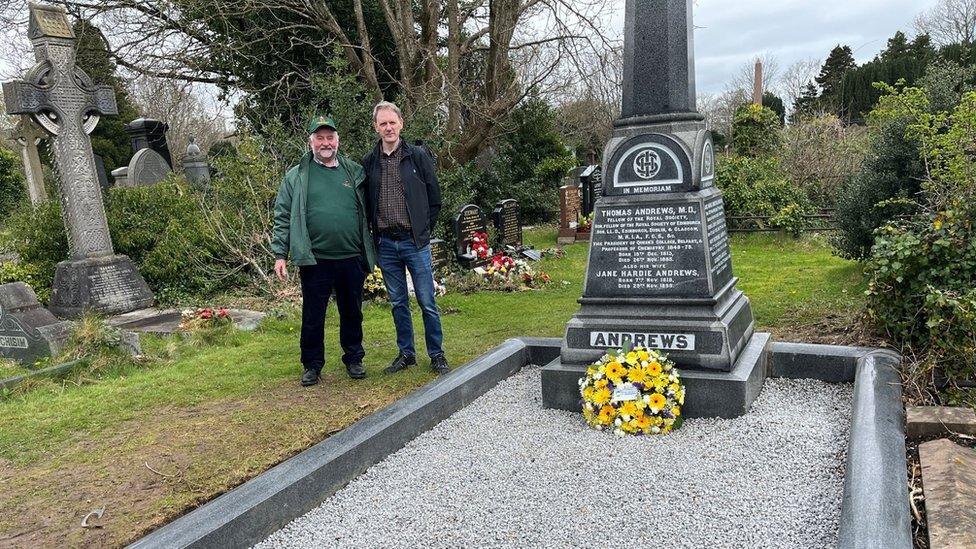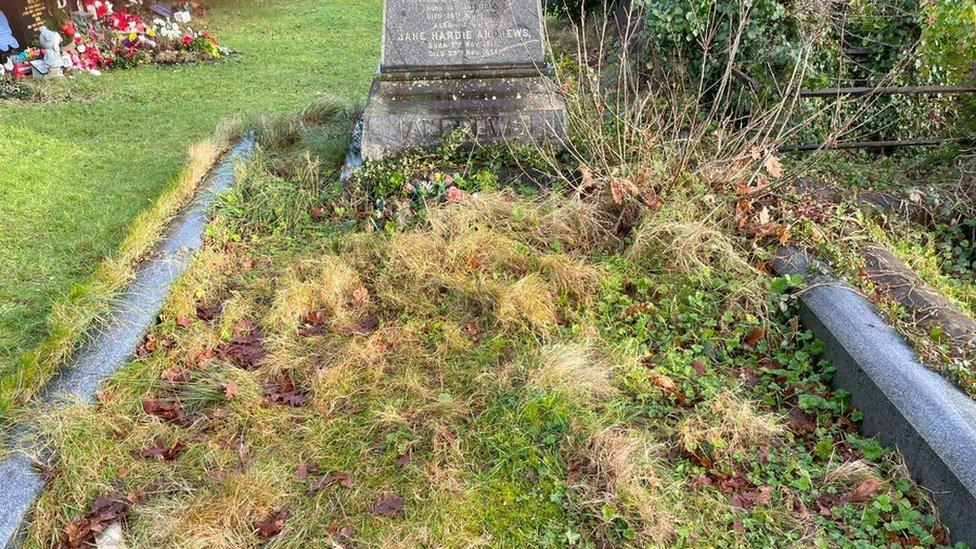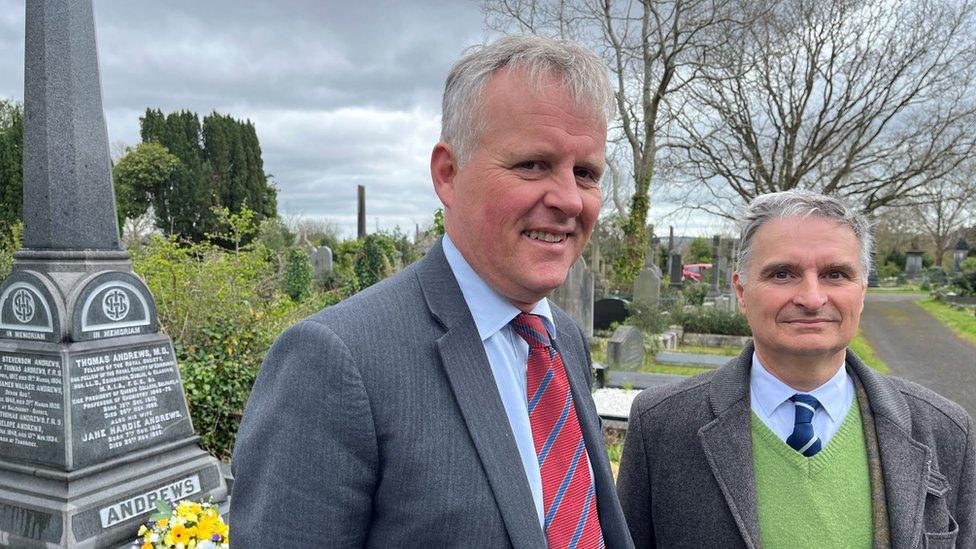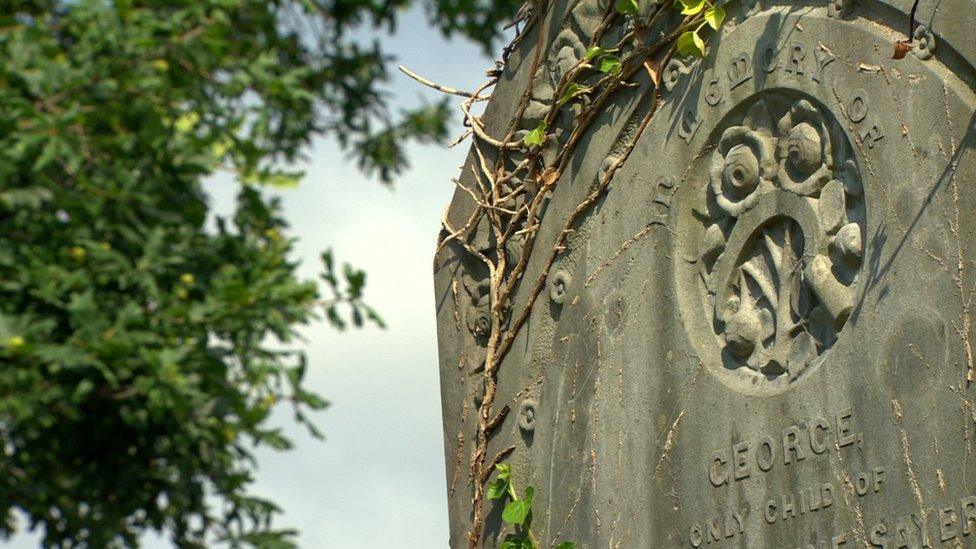Prof Thomas Andrews: Scientist's Belfast grave restored
- Published

Professor Thomas Andrews' west Belfast grave has been restored
The west Belfast gravestone of a 19th century scientist has been restored to try to ensure his contribution to the modern world is not forgotten.
Prof Thomas Andrews, who died in 1885, is credited with developing some of the science behind the household fridge.
A rededication service at his grave at the City Cemetery on the Falls Road was held to remember his pioneering work.
Known for modesty, the influential scientist turned down a knighthood for his research.

Prof Thomas Andrews' grave in west Belfast was overgrown before it was restored
Until the recent restoration of his grave the stonework had worn and the burial ground was overgrown.
Queen's University Belfast, the Royal Society of Chemistry (RSC) and the Andrews family worked together on the project, in memory of the professor who died at the age of 71.
A spokesperson for the RSC said: "Among his findings was the discovery of the 'critical temperature' for the liquefaction of carbon dioxide, which is the basis of cryogenics and of low-temperature chemistry and physics.
"The modern refrigerator was also born out of his research on the liquefaction of gases."

Robert Andrews (L), pictured with his brother Johnny Andrews, has followed in the family footsteps and is a chemistry teacher
Members of the RSC were joined at his graveside for the rededication ceremony by Queen's University scientists and members of the wider Andrews family.
One of the professor's descendants, Robert Andrews, is a chemistry teacher at Hazelwood College in Belfast.
Prof Andrews, who was born in 1813, was a distant relative of his namesake Thomas Andrews who designed the ill-fated Titanic which sank in 1912.
He was the first professor of chemistry at Queen's, from 1845 to 1879.
'Thomas Andrews paved the way'
Modern-day academics have praised his work.
Prof Steven Bell, from the school of chemistry at Queen's, said it was important to remember academics from the past and their achievements.
"Thomas Andrews paved the way in the area of cryogenics and low-temperature chemistry and physics, research that is still as important today as it was when it was discovered," he said.
Related topics
- Published3 August 2019
